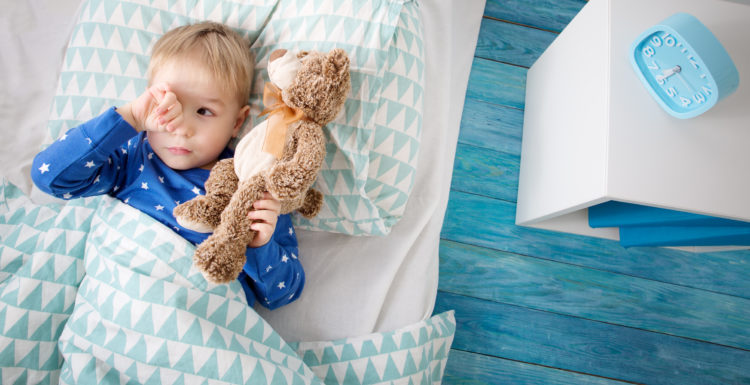
Sleep Problems among Children on the Spectrum
Many of us have trouble falling asleep but for children with Autism Spectrum Disorder, sleep can be especially problematic. Falling asleep is often difficult, and so is staying asleep once they finally nod off. Here, we look at the causes, consequences, and solutions for sleep problems in children with ASD.
- Sleep problems are more common in children with ASD than in other children. In fact, while only about 10 to 16 percent of children in the general population have trouble sleeping, the percentage jumps to anywhere between 44 and 86 percent for children with ASD.
- People with ASD tend to have a wide range of sleep problems. They may suffer from insomnia, taking about 11 minutes longer than typical people to fall asleep, and they may also wake up frequently throughout the night. Some people with Autism Spectrum Disorder also have sleep apnea, which causes them to stop breathing at different times throughout the night. Another reason may be due to having less restorative sleep than most people. For individuals with ASD, about 15 percent of their sleeping time is spent in the rapid eye movement (REM) stage, a time of learning and retaining memories, whereas most neurotypical people spend about 23 percent of their sleeping time in REM.
- Evidence indicates that this lack of sleep can have significant consequences. Too little good sleep may make certain issues worse. Children who lack sleep have more severe repetitive behaviors and more difficulty in making friends than other people on the spectrum. Moreover, they are more likely to score lower on intelligence tests. One study found that children with autism who have sleep difficulties are more hyperactive and easily distracted than those who sleep well. However, it is unclear whether these issues stem from poor sleep, contribute to it, or both.
- There are different reasons a person with ASD would have trouble sleeping. Often, they have additional conditions that contribute to the problem of disrupted sleep, including gastrointestinal issues, attention deficit hyperactivity disorder, or anxiety. They might also be taking medications that can negatively affect sleep. Additionally, a 2015 study suggests that individuals with Autism Spectrum Disorder are twice as likely as typical people to carry mutations in their genes that govern the sleep-wake cycle.
- Traditional sleep studies aren’t always appropriate for people with ASD. Polysomnography is the most common sleep test, performed in a lab using sensors and wires to track brain waves, eye, and limb movement, and breathing patterns. This kind of study is not always practical for those with ASD, as such a research group has brought equipment into the homes of people with ASD to try and solve the problem. Sleep can also be tracked through actigraphy, which records movements throughout the night using a wristwatch-like device, or researchers can interview families and ask for sleep diaries.
- There are some solutions that may help your child sleep better. Sometimes, it can be as simple as establishing a better, more consistent bedtime routine, or changing the temperature or lighting of the bedroom. Sticking to a regular schedule is also important. The United States Food and Drug Administration has not approved insomnia medications for children with Autism Spectrum Disorder, but melatonin supplements may be a good option in some cases. This option can be discussed with your doctor. For serious sleep issues like sleep apnea, your doctor might recommend a nighttime breathing device or even surgery in rare cases.
Disclaimer: The information provided in this blog is for general informational purposes only and should not be considered as professional advice. The content is based on the author's personal experiences, research, and opinions. It is always recommended to consult with a qualified professional or expert before making any decisions or taking action based on the information provided in this blog.
Related Articles
What is Autism Spectrum Disorder (ASD)? It’s confusing, in part because it’s actually not a single...
In order to obtain proper treatment and therapy for a developmental disorder, it is important to...

